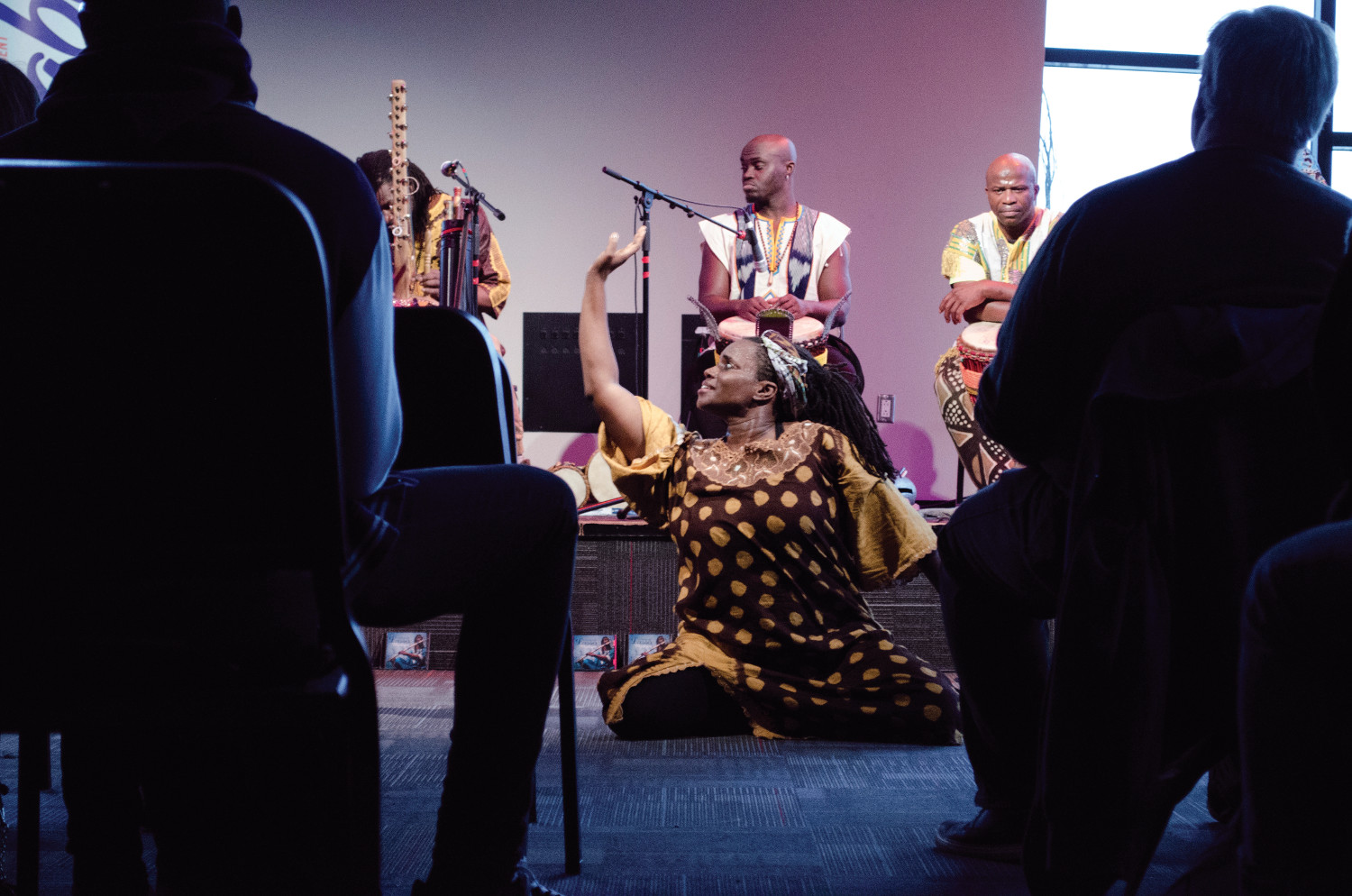Anna Tkachenko | Contributor
Featured image:Â The Kouraba Organization came to York on November 2 to give the community a taste of African culture. | Anna Tkatchenko
This year, Toronto hosted the fifth edition of the Kouraba World Music Festival, a multicultural festival generated by the Kouraba Organization (Kouraba Toronto Centre for Cultural Advancement) to emphasize the unity of the worldwide traditional music and cultural similarities between Francophone and Anglophone Black Africans, as well as people of all other colours and ethnicities.
“All the music is one! It brings us all together,†said Co-Founder of the Kouraba Organization and of the Kouraba World Music Festival and Master Percussionist Amara Kante.
He compared traditional music to a train that began its journey long ago and has come all the way to modern day, which diversified from accumulated passengers.
“The modern music is different today, but it emerged from the traditional. What our Organization intends to do, is to mix and change its flavours. For example, we garnish Indian music with African features, we do not overshadow it. We add the flavour—to sound differently.â€
The day before the Kouraba World Music Festival, on November 2, York was honoured to experience a miniature extract of the organization’s musical composition. In the Martin Family Lounge, located in the Accolade East Building, the Kouraba World Music Ensemble, under the direction of Kante, performed West African dance and music.
The Ensemble used traditional African instruments—the djembe, dunun, and krin—to create rhythmic and expressive melody, complemented by an enchanting solo dance. Through the sound and movement, the members of the Ensemble opened their souls, allowing the audience to investigate the powerful traditional spirit of African culture, which seemed to conquer the hall.
“During my childhood, I was significantly influenced by the melody of the great drummer genius Famoudou Konate. People often do not understand the djembe flavor. All my masters (Mamadou Camara, Sékou Camara [alias ‘cobra’], Mamady n’Toman Keita, Issa Balo, Soungalo Coulibaly, Mansa Camio, and Souleymane Koly) helped me interpret this music as love, like when you cuddle a daughter tenderly to help her fall asleep. However, these are always the memories of my mother that overtake me while performing on stage.
Indeed, there are all of these mothers inside my music, because they have this music when they give birth to you, and when they hold you,†reveals Kante on the secret of his inspiration.
The Kouraba World Music Ensemble had a wonderful relationship with their melody and body movement. The tempo of the performance was intensive: The hands of the musicians moved at a quick pace, and after 15 minutes, their foreheads were drenched in sweat, but their lips spread into a grin.
Throughout the performance, Kante addressed the public, offering his ideas on traditional music.
“The music we play today is spiritual. There is no politics! This was the way people communicated long before Facebook and iPhones were created,†Kante explains.
On several occasions, the audience was invited to contribute to the show and a few people joined, allowing the rhythm to fill their veins with inspiration and triumph over their clumsiness, dictating the movements to their bodies.
“I travel a lot, giving numerous performances in diverse schools and concerts outside and inside my country. The audiences are always different. For me, as for the artist, it is essential that they accept the music I give them,†explains Kante.


